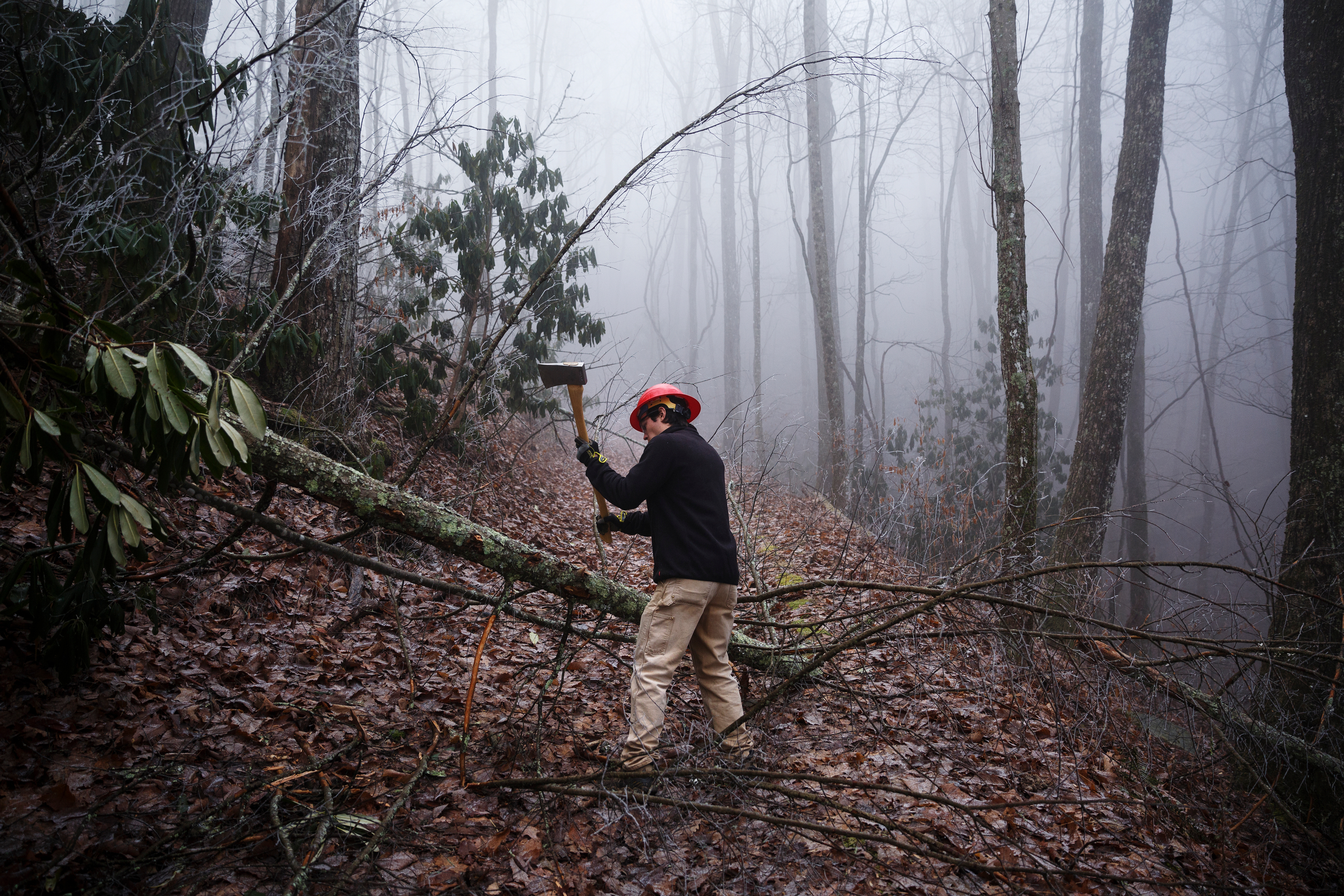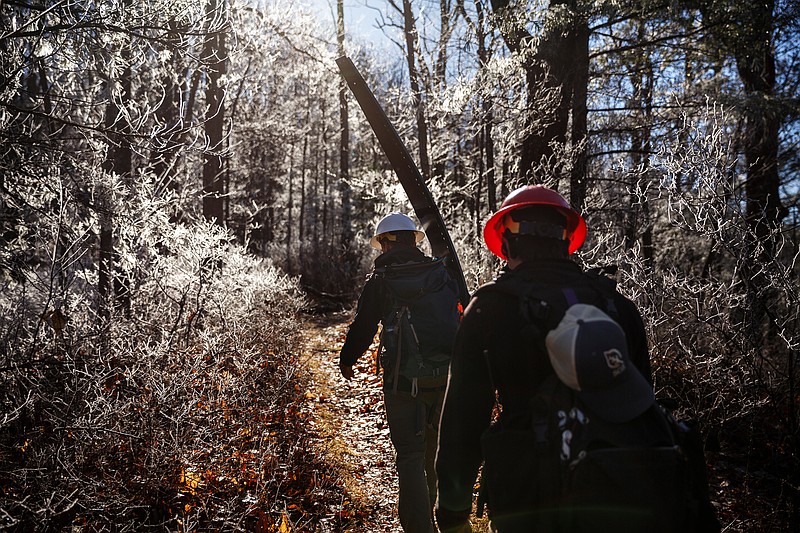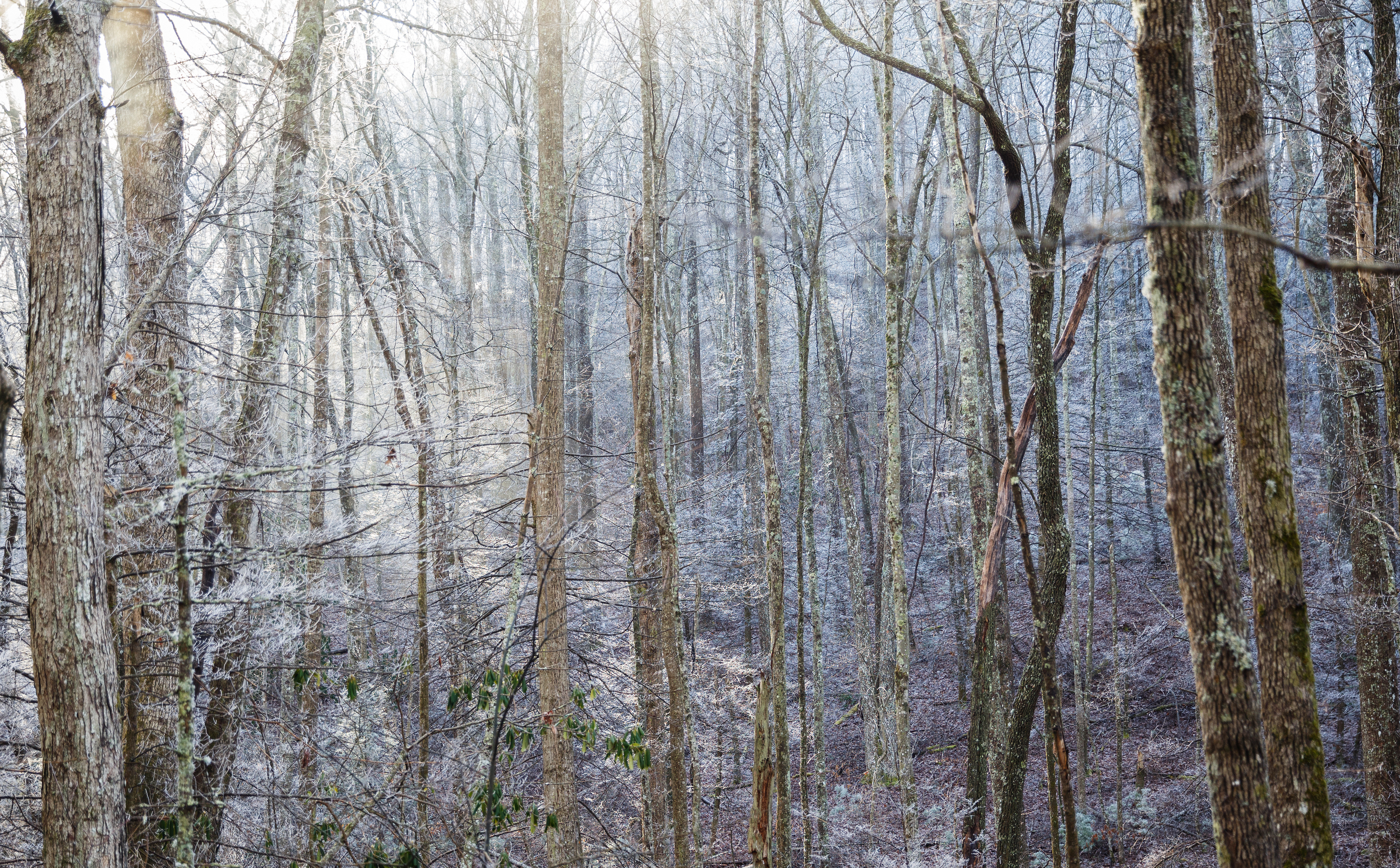Tucked inside the 800-page, $800 million-plus Agriculture Improvement Act of 2018, known as the Farm Bill, is a smaller piece of legislation dedicated to the continued conservation of thousands of acres of forested land in Tennessee.
The Tennessee Wilderness Act will designate the highest level of protection for 20,000 acres in the Cherokee National Forest. With the bill's passage this week - and expected forthcoming signature of the president - comes the first new wilderness designation in Tennessee since 1986, when much of the northeast area of the forest was protected.
"A diverse coalition of hunters, anglers, faith leaders, small business owners, veterans and conservationists worked for years to safeguard the area's wildlife, clean water, and outdoor recreation access," according to a statement from Tennessee Wild campaign coordinator Laura Hodge, who led the campaign for the wilderness act. "For five Congresses, this coalition has encouraged and supported our Senators as they championed these protections. Today, we are hoping these areas finally see the protection they deserve."
However, some see the act as unneeded government intervention.
U.S. Rep. Chuck Fleischmann, R-Tenn., was strongly opposed to the Tennessee Wilderness Act, although he did ultimately support the Farm Bill for the "immense benefits [it] provides to struggling rural hospitals and the protection of the livelihood of Tennessee farmers."
Fleischmann represents much of the protected area.
"I fought hard to make certain that the House version of the Tennessee Wilderness Act, which I view as another layer of federal bureaucracy, did not encompass lands in Tennessee's Third District," Fleischmann said in a statement. "I was very disappointed that the Senate version of this bill was lumped into the Farm Bill conference report and included lands in my district."
The act protects about 12,000 acres in the southern zone of the forest in Monroe and Polk counties. The remaining 8,000 acres will create the new Upper Bald zone. That new designation will protect much of the Bald River and Bald River Falls area, which provides water to the Tellico and Ocoee River watersheds.
 Staff photo by Doug Strickland / Clayton Morgan with the U.S. Forestry Service removes limbs from a downed tree on the Fodder Stack Trail of the Citico Creek Wilderness in the Cherokee National Forest on Thursday, Feb. 8, 2018, in Monroe County, Tenn. SAWS works exclusively with manual tools to maintain wilderness trails where gasoline-powered equipment is not allowed.
Staff photo by Doug Strickland / Clayton Morgan with the U.S. Forestry Service removes limbs from a downed tree on the Fodder Stack Trail of the Citico Creek Wilderness in the Cherokee National Forest on Thursday, Feb. 8, 2018, in Monroe County, Tenn. SAWS works exclusively with manual tools to maintain wilderness trails where gasoline-powered equipment is not allowed.With the designation comes a set of guidelines on how the area can be managed: no mechanized or gas-powered equipment, no logging, no drilling, no mining, no road building. Ten percent of the forest is designated wilderness. With the new act, that will increase to 13 percent - which is still 5 percent less than the national average for forested areas.
For the general public, nothing will change. The U.S. Forest Service recommended the area for wilderness designation in its 2004 forest plan and has been treating it as such since. The public land has been handled and cared for as if it were wilderness for more than a decade. The new act ensures it will remain that way. No private land is within the zone's boundaries.
The act was first introduced to the U.S. Senate in 2010, but Congress adjourned without action. It was introduced again in 2011, 2013, 2015 and 2017 but failed to see full action until being attached to the overarching Farm Bill.
"We applaud Congress for voting to protect these natural treasures for future generations to enjoy," reads a statement from Pew Charitable Trust Director of U.S. Public Lands Program John Gilroy. "Once President Trump signs the measure designating this land as wilderness the law will help conserve critical wildlife habitat and corridors, support local cities and towns that rely on the outdoor recreation economy, and ensure that hunting, hiking, camping, and fishing will continue in the region."
Contact staff writer Mark Pace at mpace@timesfreepress.com or 423-757-6659. Follow him on Twitter @themarkpace and on Facebook at ChattanoogaOutdoorsTFP.
Legislators React
U.S. Rep. Chuck Fleischmann, R-Tenn. "I fought hard to make certain that the House version of the Tennessee Wilderness Act, which I view as another layer of federal bureaucracy, did not encompass lands in Tennessee's Third District. I was very disappointed that the Senate version of this bill was lumped into the Farm Bill conference report and included lands in my district. If the Senate version of the Tennessee Wilderness Act were to come up for an individual vote in the House, I would have strongly opposed it. However, that was not the case. This left me with the difficult decision to consider a broader range of factors important to East Tennesseans, like the immense benefits the Farm Bill provides to struggling rural hospitals and the protection of the livelihood of Tennessee famers." U.S. Sen. Lamar Alexander, R-Tenn. "Today, the United States Senate passed the Tennessee Wilderness Act, and it now heads to House of Representatives and then to President Trump's desk to become law. The legislation will protect 20,000 acres of federal land in the Cherokee National Forest as 'wilderness,' where we can roam and enjoy nature. This is land in East Tennessee that's already managed as wilderness, but not made a part of the wilderness law. Designation as wilderness will not only better protect ecosystems and watersheds, but also benefit the diverse recreational value of these areas, which is a major part of East Tennessee's economy. I thank Senator Corker, Congressman Roe and the many Tennesseans who've gotten in touch with us about making the Tennessee Wilderness Act law." U.S. Sen. Bob Corker, R-Tenn. "Millions of people visit Tennessee each year to experience our incredible God-given outdoor amenities, and it's important that the Cherokee National Forest be preserved for future generations of Americans to enjoy. I thank Senator Alexander and Representative Roe for their commitment to protecting our wilderness and am glad the conference committee included the Tennessee Wilderness Act in the final farm bill." U.S. Rep. Phil Roe, R-Tenn. "I am fortunate to represent a district blessed with natural beauty, and as an avid outdoorsman, I strongly believe we must protect the beautiful lands we're fortunate to have in East Tennessee. That's why I am pleased to see the Tennessee Wilderness Act be included in the Farm Bill that is set to be voted on later this week in the House, which will preserve thousands of acres in East Tennessee. As the House sponsor of this legislation, I commend Senator Alexander for his tireless efforts to pass this bill and join with Senator Corker in strongly supporting this important effort. I look forward to continue working with my colleagues to keep Tennessee beautiful for generations to come."

